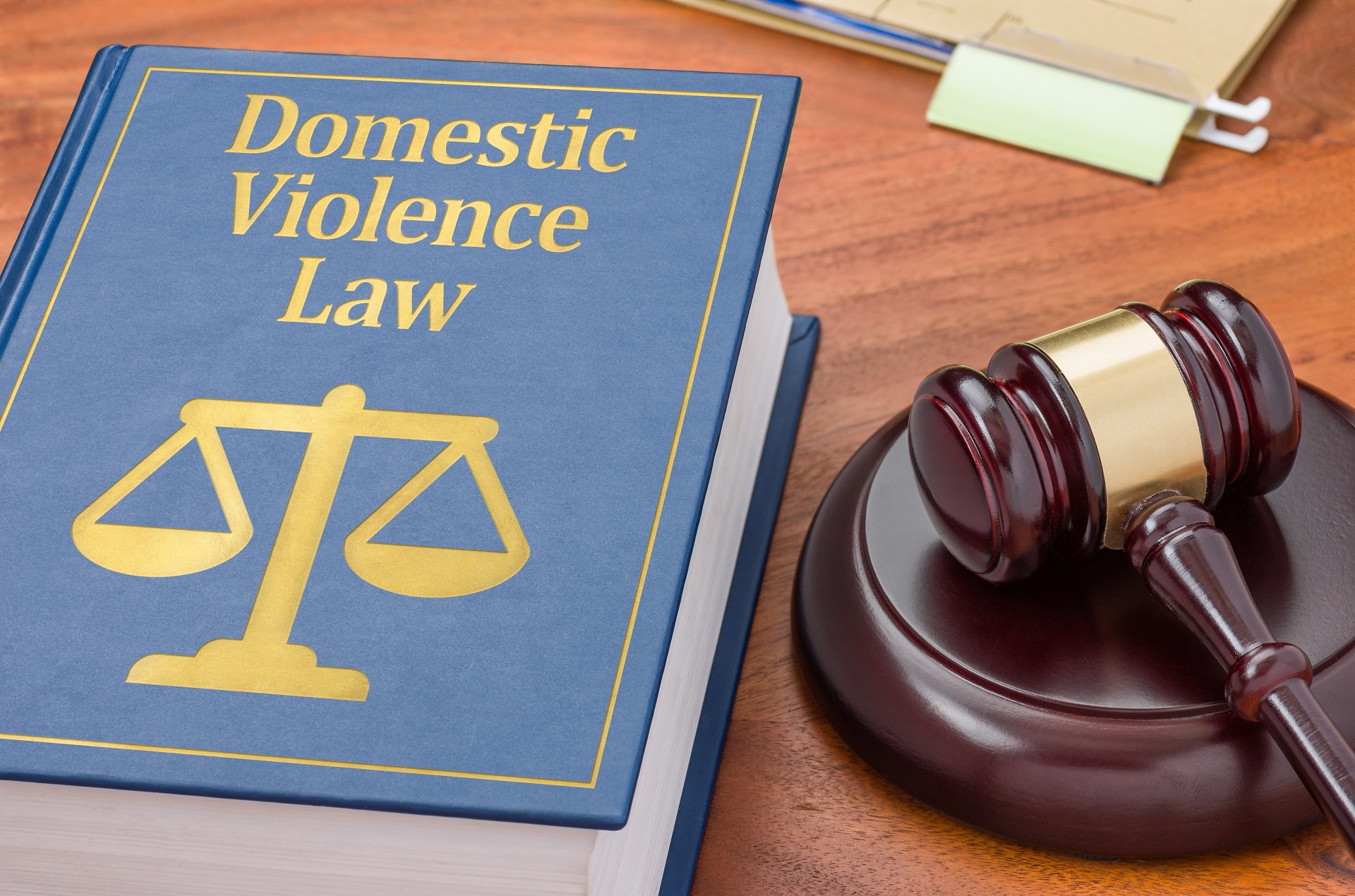Understanding the Evolving Landscape of Domestic Violence Laws in Seattle
Even though recent decades have seen a growing awareness of domestic violence and its harmful effects on survivors and their families, incidents of domestic abuse continue to occur between spouses, dating partners, family members, or cohabitants. According to the National Coalition Against Domestic Violence (NCADV), “nearly 20 people per minute are physically abused by an intimate partner in the United States.” In other words, more than 10 million people experience domestic violence every year. It’s important to recognize that anyone can be a survivor of domestic violence—women, men, transgender and nonbinary individuals, as well as people in heterosexual or same-sex partnerships, can all experience domestic abuse. Moreover, domestic violence encompasses a wide range of behaviors that extend far beyond physical abuse. Using emotional manipulation, limiting a partner’s financial independence, or attempting to deprive someone of their independence and autonomy are all forms of domestic violence.
In the wake of the uptick in domestic violence incidents exacerbated by the COVID-19 pandemic and the subsequent “stay-at-home orders,” Washington state legislators enacted several changes to simplify the process for obtaining a protective order against a domestic abuser. Additionally, Washington laws updated and enacted a broader and more comprehensive definition of domestic violence to extend legal protections to more individuals and families throughout the state. Let’s take a look at how Washington’s new domestic violence law and other relevant revisions may affect the protection order petition process for survivors and those who have been wrongly accused of domestic violence in the Seattle area. No matter what the specifics of your situation may be, consider enlisting the guidance and support of an experienced and trusted King County family law and domestic violence attorney to help you achieve your desired outcome.
What is the New Law on Domestic Violence in Washington?
Before 2022, Washington’s domestic violence law defined such acts as those causing “physical harm, bodily injury, assault, or the infliction of fear of physical harm, bodily injury, or assault” by one intimate partner or household member against another. Under this definition, stalking behaviors also fall under the umbrella of domestic violence. However, as advocacy groups and legislators looked for ways of acknowledging that domestic violence comes in many forms, it became clear that amending and expanding the legal definition of domestic violence was warranted and necessary. Now, the Washington statute that provides the legal definition of domestic violence reads: “Physical harm, bodily injury, assault, or the infliction of fear of physical harm, bodily injury, or assault; nonconsensual sexual conduct or nonconsensual sexual penetration; coercive control; unlawful harassment; or stalking of one intimate partner by another intimate partner.” Below is a brief overview of these newly added terms and their implications for both survivors of domestic violence and those accused of perpetrating such acts in Washington state.

Nonconsensual vs. Consensual
In order to understand the implications of the term “nonconsensual,” it’s important to define the term “consent” and how it applies to acts of sexual conduct or sexual penetration between intimate partners or household members. Washington defines consent by clarifying that “at the time of sexual contact, there are actual words of conduct indicating freely given agreement to that sexual contact.” Moreover, consent must be “ongoing and may be revoked at any time.” In order to freely give consent, a person must have the capacity to do so (i.e., when disability, age, or intoxication do not impair the person’s ability to give their consent). Consent cannot be freely given if one partner or party has control or authority over the care or custody of the other person.
Understanding Coercive Control
Another notable addition to Washington’s definition of domestic violence is the term “coercive control.” The legal definition is expansive to address a wide and varying range of actions or behaviors, all of which aim to deprive a person of their autonomy and independence. Coercive control assumes many forms, from verbal intimidation, threats, and cyber harassment to controlling or monitoring another person’s movement or communications with others. Depriving a household member or intimate partner of basic necessities or restricting their access to financial resources (like bank accounts or credit cards) also constitutes coercive control. Under this newly expanded definition of domestic violence, it’s possible for someone to experience domestic abuse without enduring physical harm. However, the acts of coercive control may have a profound psychological impact on the survivor, prompting them to rely on the abuser and sacrifice their independence, autonomy, and self-worth.

The Impact of Washington’s Domestic Violence Law Changes on Protection Orders
As domestic violence prevention and advocacy groups worked with Washington legislators to expand the legal definition of domestic violence, it became clear that domestic abuse survivors still faced obstacles when seeking civil protection orders against their abusers. Before the most recent changes took effect in 2022, those seeking a protection order in Washington state had to navigate a series of different petitions and forms to identify the most appropriate type of protective order for their situation. For example, someone fearing for their physical safety at the hands of an abusive partner would have to decide whether to petition the court for a Domestic Violence Protection Order, an Anti-Harassment Protection Order, a Stalking Protection Order, or a Sexual Assault Protection Order. Survivors of domestic abuse often felt overwhelmed and intimidated in the face of all of these choices, which deterred some vulnerable individuals from taking the steps they needed to feel safe.
As of 2022, Washington offers one streamlined form for anyone seeking legal protection from an abuser. This unified form simplifies the petition process, allowing the petitioner to indicate the type of protection order they are seeking and providing detailed information about each one. Instead of expending time and energy locating the correct form for their situation, the petitioner can complete a universal form and move forward with their petition as quickly and efficiently as possible. It’s important to recognize that you can always enlist the guidance and support of a trusted and empathetic Seattle family law and divorce attorney to help you navigate this process and obtain the legal protection you need to feel safe once again.
Domestic Violence Law Change and False Accusations
Although Washington’s newly revised definitions and procedures for expanding legal protections for survivors of domestic violence undoubtedly help many vulnerable individuals leave unhealthy and unsafe environments, some concerns have emerged in regard to the effect of these changes on those who are falsely accused of domestic violence. Now that acts of coercive control can be considered forms of domestic violence, a judge can issue a domestic violence protection order for conduct that is not considered violent (or even threatens violence against the alleged victim). For example, if your spouse was seeking to divorce you and wanted to maximize their chances of the court awarding them custody of your children, they could petition the court to issue a protection order against you. Unfortunately, the “evidence” they provide to the judge to justify the issuing of a protection order could be manipulated or exaggerated to meet the somewhat lower threshold of coercive control. Suddenly, you could find yourself facing a domestic violence protection order hearing, the outcome of which comes down to your word against the petitioner’s word. Such hearings are already stressful enough, as the respondent (the individual against whom the petitioner is seeking protection) has very little time or opportunity to contest the matter. If you are facing inaccurate, baseless, or false accusations of domestic violence, reach out to a knowledgeable and highly qualified Seattle domestic violence lawyer to discuss your civil defense options and strategies.
Reliable Legal Guidance to Keep Your Future Bright
Everyone wants to feel safe in their home. Living in fear of a spouse, dating partner, or family member can be debilitating and stressful. Feeling as if you have to keep this person happy and recognizing that you have to sacrifice your independence and well-being to keep them appeased can take a tremendous toll on your physical, emotional, and mental health. However, as overwhelmed and isolated as you may feel right now, you do have options. Enlisting the guidance of a caring and trusted Seattle attorney is the best way to explore your options and secure the legal protections you need to regain control of your life. Alternatively, learning that someone is accusing you of domestic violence and petitioning the court to issue a protection order can be devastating and concerning. Your best bet is to discuss the details of your case with a trusted Seattle lawyer who can offer some strategies for navigating this difficult situation with greater ease and certainty. Now’s the time to start laying the groundwork for a brighter and more stable future—get in touch with a dedicated family law and protection order attorney today to get started.
The dedicated and compassionate legal team at the Hemmat Law Group is committed to helping individuals and families navigate and resolve their divorce, domestic violence, and family law cases. We encourage you to call our Seattle office today at (206) 682-5200 to get started with a trusted and empathetic attorney who will protect your best interests at every opportunity.
The Hemmat Law Group (HLG) was founded in 1994 by Steven Amir Hemmat, a former DOJ Trial Attorney. We specialize in family law, supporting victims of the legal system.
The Hemmat Law Group help good people in bad situations.
Our lawyers provide expert legal advice connected to protection orders, including in cases of domestic violence, stalking, and neighbor disputes. Contact us today.













